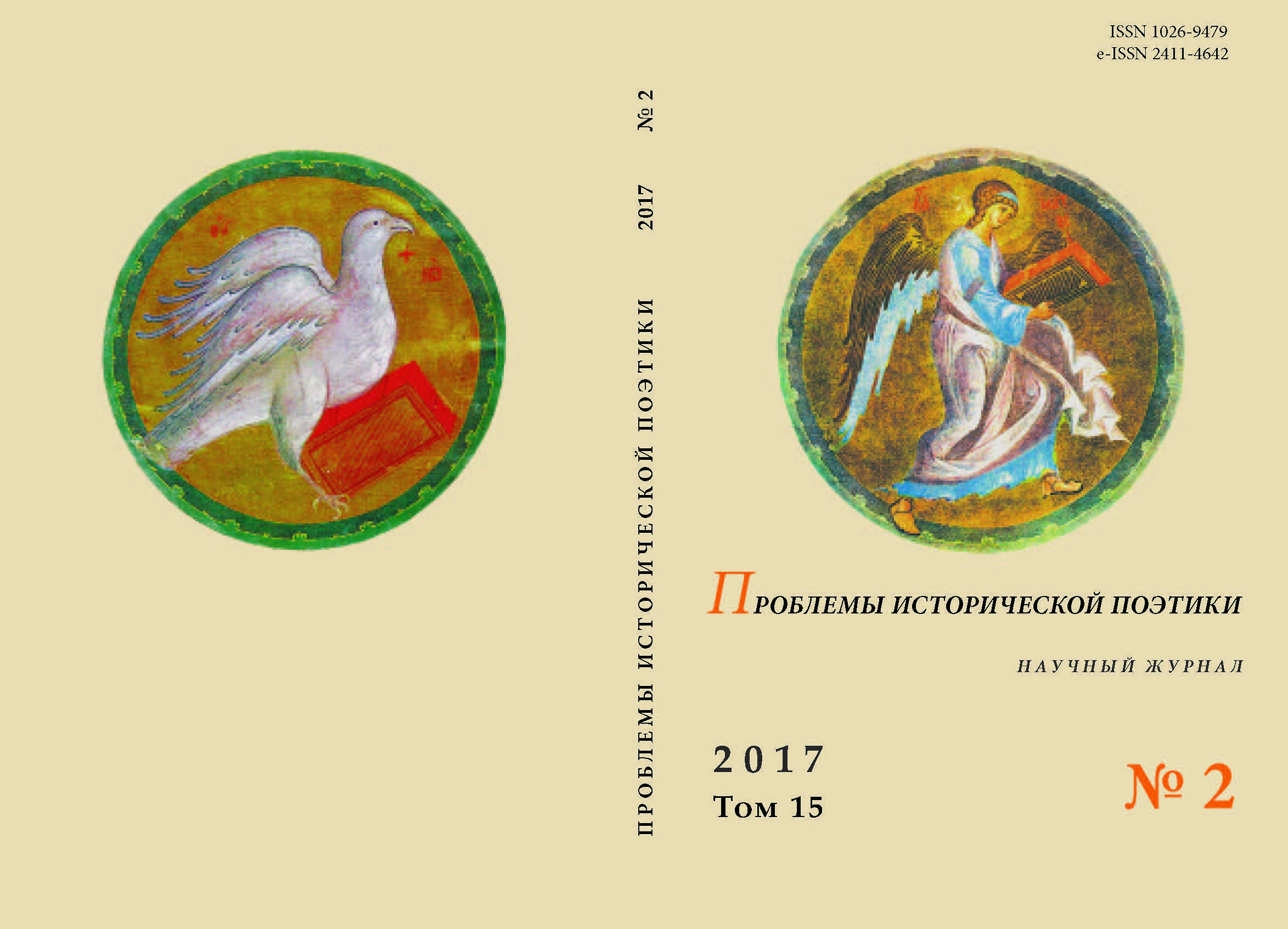ПОЭТИКА ПОВЕСТИ Н. Н. ТОЛСТОГО «ПЛАСТУН»
THE POETICS OF N. N. TOLSTOY’S LONG SHORT STORY “PLASTUN”
Author(s): Elena Viktorovna BelousovaSubject(s): Language and Literature Studies, Literary Texts, Studies of Literature, Russian Literature, Philology
Published by: Петрозаводский государственный университет
Keywords: N. N. Tolstoy; “Plastun”;long short story;poetics; image;motive; symbolical implication; religious and philosophical aspects;
Summary/Abstract: The article presents the analysis of the main problems of the long short story “Plastun” by Nikolay Tolstoy (the elder brother of Leo Tolstoy), that is the life of a man kidnapped during the Caucasus War and forced to live all his life in captivity. In the centre of narration there is a real man though described as a generalized character as far as he does not have a personal name. Different periods of his life are marked by certain nicknames, such as Zaychik-Volkovoy-Zaporozetz. The main character tells the listener Tolstoy N. N., who shows the interest and compassion to his life, the story of his childhood and youth. As a child his nickname was a Zaychik. As an adult he became an experienced hunter and an expert in animal habits the fact that explains his new nickname – Volkovoy. The composition of the long short story is full of philosophical, psychological and ethic symbols and personifications, based on Sacred Writings and the Patristic Tradition. The childhood-youth part of the short story is particularly symbolic as then the virgin soul of the hero felt the presence of God and strived to pray. The images-symbols play an important role in the artistic world of the short story: a singing nightingale, birds, men-mice, the “glass” sea, fish and palaces in the Zaychik’s dreams.
Journal: Проблемы исторической поэтики
- Issue Year: 15/2017
- Issue No: 2
- Page Range: 42-59
- Page Count: 17
- Language: English, Russian

